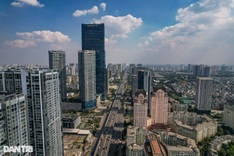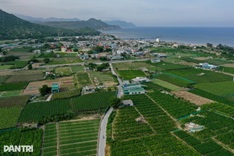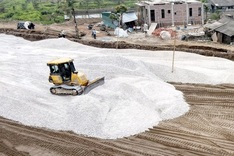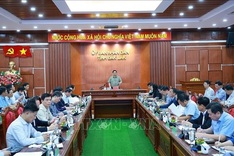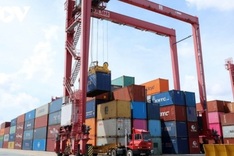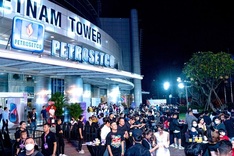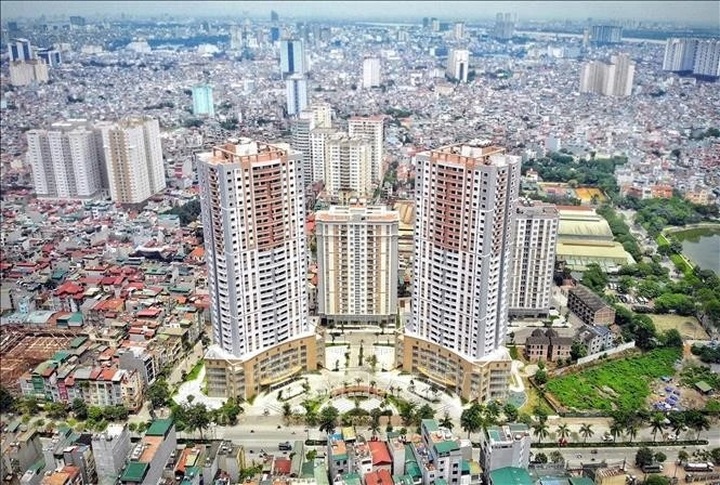
The real estate sector attracted 3.72 billion USD in FDI in 2024. (Photo: VNA)
Foreign direct investment (FDI) in the real estate sector for 2024 reached 3.72 billion USD, making up 18.8% of the total FDI that Vietnam attracted in the year, second only to the manufacturing sector, reported the General Statistics Office (GSO).
When combining both new and added capital from previously approved projects, the total FDI in the real estate sector hit 5.09 billion USD, accounting for 15.1% of the total FDI Vietnam attracted in the year.
In terms of disbursement, the capita disbursed in real estate business activities hit 1.84 billion USD, representing 7.2% of the total FDI, making it the second-largest sector in the field, following manufacturing.
David Jackson, CEO of Avison Young Vietnam, pointed out that the industrial real estate segment continues to shine in the market, with rising rental rates, increasing supply, and high occupancy rates. The main driver behind this growth is FDI flowing into manufacturing sectors.
In the short term, economic, trade, and geopolitical fluctuations, particularly influenced by the policies of President Donald Trump, may create immediate pressure on foreign investment and exports. However, in the long run, Vietnam, with its strategic location, relatively stable political environment, competitive costs, and improving investment climate, could become the next global manufacturing hub if it seizes the opportunity, Jackson explained.
Avison Young Vietnam has noted that investor confidence in the future of the Vietnamese market remains strong, with continued investments in approved projects. This is evident from the 25.35 billion USD in total FDI in Vietnam in 2024, a 9% increase compared to 2023, with real estate business activities attracting 1.84 billion USD, a 60% increase.
Notably, while major global real estate markets are underperforming, FDI in Vietnam’s real estate sector is on the rise, underscoring the market’s appeal to foreign investors.
Jackson emphasised that foreign investors not only highly value the policy conditions, investment environment, demographics, and urbanisation in Vietnam, but also see a supply-demand gap in key segments such as industrial and logistics real estate, housing, office spaces, and retail.
Nguyen Le Dung, Head of Investment at Savills Hanoi, noted that certain real estate segments are attracting increased foreign interest. The residential real estate segment continues to gain attention due to rapid urbanisation and growing housing demand in Vietnam’s major cities. The limited supply of new projects, constrained by legal restrictions, keeps this segment in high demand among foreign investors.
Furthermore, the strong growth of Vietnam’s manufacturing sector has made industrial real estate an increasingly attractive segment. This growth is driven by the presence of numerous foreign investment funds and developers focusing on high-standard warehouse and factory projects.
The commercial real estate sector has also seen considerable interest, driven by the growth of retail and services markets. This reflects the increasing demand for urban real estate, supported by changes in consumer habits, with more customers preferring shopping experiences in shopping malls and multifunctional service spaces, she said.
However, Dung pointed out that investors are now favouring private enterprises due to their flexibility and ability to adapt quickly to operational needs. Investment scale and total capital vary across different segments of the real estate market.
Particularly, investors are focused on projects that offer sustainable development and meet the current market demand to improve product quality and consumer experiences. Legal issues remain a top priority for investors, as they directly impact project timelines, transaction structures, and financial planning, she said./

